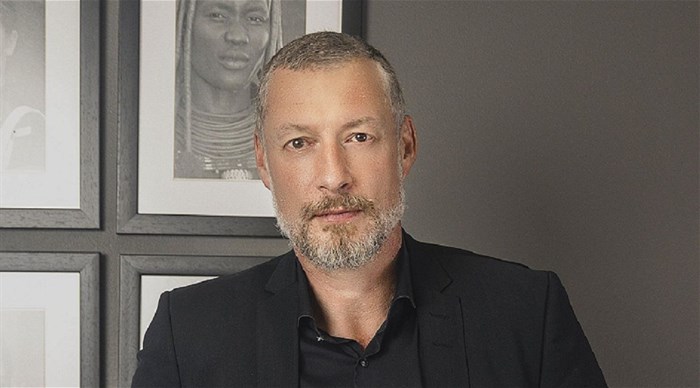
Top stories






LifestyleWhen to stop Googling and call the vet: Expert advice on pet allergies from dotsure.co.za
dotsure.co.za 2 days
More news

















If 2020 and 2021 were years of unplanned business preservation, 2022 is where it needs to get intentional. To prepare for the post-Covid-19 era, leaders will need to do more than fine-tune their daily tasks; they need to be ready and willing to reconsider how they operate and even why they exist. Below are the top leadership lessons I learned in 2021 that I believe will endure beyond the pandemic and build sustainable organisations – even amid great uncertainty and continuous change.
Although most leaders strive to create work environments that foster open communication and authentic engagement, the challenges of 2021 quickly put this to the test. Whether coping with retrenchments and the other financial implications of Covid-19, or managing virtual teams of overworked and overwhelmed employees, leaders have had to find new ways to meaningfully communicate and engage. I observed time and time again how establishing real connections between team members has proved vital to the success of organisations. I saw corporate leaders having to speak more openly than ever before, while stepping up and having tough conversations.
It is imperative that we, as leaders, take ownership of enabling the type of engagements that go beyond the surface level. This kind of transparency will foster an employee experience that gets people through any health, economic or social crisis. When leaders prioritise inclusivity and adhere to a serve and lead ethos, it helps create a safe environment where everyone can have their say, whether it involves venting frustrations, questioning or establishing collaboration.
As a result of the pandemic, organisations have had to adjust to new ways of operating, most commonly in the form of remote (and hybrid) working. Although remote work may have created new job opportunities for some, it has also increased the digital intensity of our workdays substantially. Constant accessibility makes it far more difficult to establish a healthy work/life balance and to adequately “switch off” when need be. Digital exhaustion is a real and unsustainable threat. In my work with executives this year, I have seen a persistent theme of overwork and exhaustion. It is true what they say; business does not give you a break.
Burnout, however, should not be the price we pay for success. One of the biggest lessons 2021 has taught me is the importance of taking a step back, being brave enough to ask for help and delegating when needed. In the post-pandemic era, leaders will need to place a lot more trust and belief in employees if they want a sustainable model for effective operation. Leaders will need to rethink what trust and accountability means to them. Rather than monitoring keystrokes, leaders will need to give their employees more opportunities to make their own decisions, their own way. For this to happen, however, leaders will also need to step up and empower the right people to do the job. If leaders can do this whilst being more transparent and vulnerable, eg. asking for help and owning up to shortcomings, we can achieve so much more together. A culture of trust and accountability should not be an afterthought – open, honest dialogue at all stages and levels is of the greatest importance.
In my work this year I have seen first-hand how crucial it is for team members to have a sense of belonging and purpose at work – and leaders are essential in this process. Leaders need to appreciate that people want and need meaning at their place of employment as well. Those who live their purpose at work are better team members – more loyal, more likely to go the extra mile, and less likely to leave.
Purpose helps people in organisations identify emerging opportunities and connect with stakeholders and clients. This too should be seen as a priority and a source of competitive advantage. However, it is not something that can be imposed on an employee or defined for them – people need to identify what “purpose” means to them and how they will find it in their environment. In my work, I have found that the best way to derive personal meaning is through a deep understanding of your own values and how these align to the organisational values. Open the door to genuine dialogue, create more opportunities for people to find purpose in their work and make sure you’re doing it authentically. An organisation is only as good as the people it employs, and when leaders are surrounded by likeminded people who share a passionate commitment around a common purpose, anything is possible.
If this year has taught me one thing, it’s that being a successful leader in 2022 – and beyond – necessitates leading courageously, coupled with a deep sense of belief and passion in what you do. Although corporate leaders need to exemplify taking ownership and asking the tough questions, this also means being brave enough to be vulnerable. While leading from a place of vulnerability might be challenging, it is absolutely necessary and completely rewarding – and is the most effective way to build authentic connections.
Covid-19 was a leadership reckoning; leaders, not employees, were tested in how they would show up. It is up to us as leaders to invest in our people – and build the leaders of the future. Although you can never predict what will happen in a crisis, 2021 has taught me that the organisations that want to thrive in 2022 will need to adhere to a “lead with heart and manage with head” philosophy. It’s about achieving a balance where everyone knows the rules to play the game, their role in the game, and are inspired to reach their targets – on a daily basis. Nothing should be taken for granted in this unpredictable era. Success will come to those who are intentional, decisive and brave. In 2022, leading courageously will be the only way to move forward.
